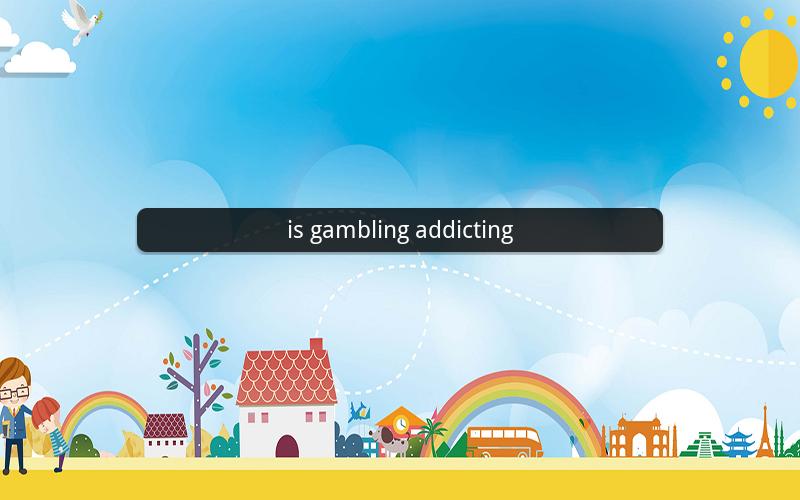
Understanding the Nature of Gambling Addiction
Table of Contents
1. Introduction to Gambling
2. Defining Gambling Addiction
3. Psychological Aspects of Gambling Addiction
- 3.1 The Role of Dopamine
- 3.2 Cognitive Biases
- 3.3 The Impact of Social Environment
4. Physical and Financial Consequences
- 4.1 Health Risks
- 4.2 Financial Ruin
5. Prevalence and Statistics
6. Prevention and Treatment
- 6.1 Prevention Strategies
- 6.2 Treatment Options
7. Challenges in Treating Gambling Addiction
8. Conclusion
1. Introduction to Gambling
Gambling has been a part of human culture for centuries, with various forms ranging from traditional lottery games to modern online casinos. It provides a sense of excitement and a chance to win substantial amounts of money. However, when it becomes an uncontrollable urge, it can lead to gambling addiction, a condition that affects individuals' lives and relationships.
2. Defining Gambling Addiction
Gambling addiction, also known as compulsive gambling or problem gambling, is characterized by an inability to control the urge to gamble, despite negative consequences. It is considered a behavioral addiction and is recognized as a mental health disorder.
3. Psychological Aspects of Gambling Addiction
3.1 The Role of Dopamine
The brain's reward system plays a crucial role in gambling addiction. Dopamine, a neurotransmitter associated with pleasure and reward, is released when individuals win or anticipate winning. This reinforces the behavior and makes it more likely to occur again.
3.2 Cognitive Biases
Gamblers often exhibit cognitive biases that affect their decision-making. These biases include overconfidence, the illusion of control, and the tendency to focus on near wins rather than losses. These cognitive distortions can lead to a continuation of gambling behavior despite negative outcomes.
3.3 The Impact of Social Environment
The social environment can significantly influence gambling behavior. Peer pressure, the desire to fit in, and the normalization of gambling can all contribute to the development of gambling addiction.
4. Physical and Financial Consequences
4.1 Health Risks
Gambling addiction can lead to numerous health issues, including stress, anxiety, depression, and sleep disorders. It can also contribute to physical problems such as headaches, digestive problems, and cardiovascular disease.
4.2 Financial Ruin
Financial consequences are often severe for individuals with gambling addiction. They may experience debt, bankruptcy, and financial strain that can lead to homelessness and other life-altering situations.
5. Prevalence and Statistics
The prevalence of gambling addiction varies by region and demographic. However, studies suggest that millions of people worldwide are affected by this condition. The rate of problem gambling is higher among men than women and tends to increase with age.
6. Prevention and Treatment
6.1 Prevention Strategies
Prevention strategies include raising awareness about the risks of gambling addiction, promoting responsible gambling, and implementing measures to protect vulnerable individuals, such as age verification and self-exclusion programs.
6.2 Treatment Options
Treatment for gambling addiction may involve various approaches, including cognitive-behavioral therapy (CBT), support groups, and medication. CBT helps individuals identify and change their gambling-related thoughts and behaviors.
7. Challenges in Treating Gambling Addiction
Treating gambling addiction is challenging due to the complexity of the condition. Many individuals may resist seeking help, and relapse rates are high. Additionally, treatment programs often need to address underlying psychological issues and support social recovery.
8. Conclusion
Gambling addiction is a serious condition that can have devastating consequences for individuals and their families. Understanding the psychological, physical, and financial aspects of this addiction is crucial for developing effective prevention and treatment strategies.
---
FAQs
1. What is the primary cause of gambling addiction?
- The primary cause of gambling addiction is a combination of genetic, environmental, and psychological factors. While there is no single cause, individuals with a family history of addiction or certain personality traits may be more susceptible.
2. Can gambling addiction be cured?
- Gambling addiction can be managed and treated effectively, but there is no cure. With appropriate treatment and support, individuals can learn to control their gambling behavior and reduce its impact on their lives.
3. How can I tell if someone is a gambling addict?
- Signs of gambling addiction include hiding gambling activities, borrowing money to gamble, lying about gambling habits, neglecting responsibilities, and experiencing emotional and physical distress due to gambling.
4. Are there any medications to treat gambling addiction?
- While there are no medications specifically designed to treat gambling addiction, some medications may help manage the symptoms of related conditions, such as depression or anxiety.
5. How can I support someone with gambling addiction?
- You can support someone with gambling addiction by offering empathy, listening without judgment, encouraging them to seek help, and providing them with resources for treatment and support groups.
6. Can gambling addiction affect children?
- Yes, gambling addiction can affect children, often due to exposure to gambling behaviors in the family or through media. Early intervention is crucial to prevent the development of gambling-related problems.
7. Is online gambling more addictive than traditional gambling?
- Online gambling can be more addictive due to its accessibility, convenience, and the ability to gamble 24/7. The anonymity of online gambling can also contribute to increased risk-taking behaviors.
8. Can gambling addiction be prevented?
- Yes, gambling addiction can be prevented through education, awareness campaigns, and responsible gambling initiatives. Encouraging individuals to set limits and seek help when needed can also reduce the risk of developing gambling addiction.
9. How does gambling addiction affect the family?
- Gambling addiction can have a significant impact on families, including financial strain, emotional turmoil, and strained relationships. It is important for families to seek support and resources to cope with the challenges of gambling addiction.
10. Are there any support groups for gambling addiction?
- Yes, there are numerous support groups for individuals with gambling addiction, such as Gamblers Anonymous and Gam-Anon. These groups provide a safe space for individuals to share their experiences and receive support from others who have faced similar challenges.